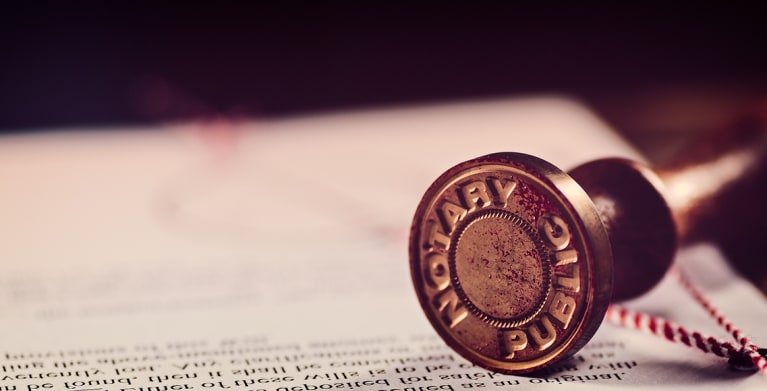Debunking Notarial Work: Simplifying the Role and Importance of Notaries
In the elaborate web of legal documentation and verification, notaries stand as columns of guarantee and authenticity. Their role, typically shrouded in enigma for lots of, brings significant weight in making sure the credibility and honesty of essential records. As guardians of legitimacy and fact, notaries play a crucial component in our culture, yet their work is not constantly totally comprehended. By untangling the complexities surrounding notarial methods and dropping light on the value of their acts, a clearer understanding emerges of the essential function notaries play in maintaining the material of legal and lawful arrangements.
The Background of Notarial Work
How did notarial work evolve with time to come to be an essential component of lawful and service transactions? The history of notarial work go back to old civilizations, where scribes played a critical function in recording crucial details and confirming papers. As cultures advanced, the demand for a more formalized system to guarantee the validity of contracts emerged. This brought about the advancement of notaries, individuals appointed by the state to work as objective witnesses in legal matters.
During the Center Ages, notaries got importance in Europe, with their functions expanding to consist of preparing lawful records, certifying signatures, and protecting documents. The surge of international trade even more highlighted the relevance of notarial operate in verifying contracts and agreements throughout boundaries.
In the modern-day period, notaries proceed to play a crucial function in lawful and service transactions by verifying identities, verifying the authenticity of papers, and protecting against fraudulence. Their duty in licensing the legitimacy of arrangements includes a layer of safety and depend on to the ever-evolving landscape of business and legislation.

Tasks and Duties of Notaries
Notaries play an important duty in verifying the credibility of records and the identification of signatures. One of their main obligations is to witness the finalizing of essential records, such as contracts, wills, and actions, to guarantee that all events are entering into arrangements knowingly and willingly.
Moreover, notaries are entrusted with administering affirmations and vows, which are critical in lawful proceedings and the execution of testimonies. They certify duplicates of original records, supplying guarantee to institutions that the copies are true replicas of the originals. Notaries need to preserve exact documents of all purchases they look after to ensure transparency and accountability. Generally, the tasks and responsibilities of notaries are necessary in guarding the integrity and legality of various files and transactions.
Notarial Certificates and Signatures
Exhibiting meticulous interest to information, notarial certifications and signatures offer as necessary elements in confirming the authenticity of lawful papers. Notarial certifications typically contain vital information such as the date of registration, the names of the signatories, a summary of the file, and the notary's main seal. These certifications give a clear document of the notarial act, making sure that the paper can be quickly identified and mapped back to the notary who oversaw the procedure.
Signatures play a pivotal duty in notarial work, as they indicate the arrangement and consent of the events involved. Notaries meticulously witness the signing of documents to confirm the identity of the notaries and confirm that they are signing of their very own free choice. By fastening their official seal and signature to the document, notaries license that the essential treatments have actually been adhered to and that the paper is enforceable and valid.
Essentially, notarial certificates and signatures are the trademark of credibility in legal deals, providing assurance to all events involved that the papers are legitimate and binding.
Relevance of Notarial Acts

Notarization Process Explained
The registration procedure commonly starts with the individual offering the record to a notary public. When the identity is validated, the notary makes certain that the private signing the document does so voluntarily and without any browbeating.

Verdict

Notarial certifications typically have vital details such as the date of registration, the names of the signatories, a summary of the document, and the notary's main seal. These certificates provide a clear document of the notarial act, making sure that the record can be quickly recognized and mapped back to the notary who looked after the procedure.
By fastening their official seal and trademark to the file, notaries license that the essential procedures have actually been adhered to and that the record is enforceable and legitimate.
By validating the identification of the notaries, confirming their readiness to enter right into the agreement, and certifying the date and location of the finalizing, notaries play an important duty in supporting the credibility of lawful papers.After the record is authorized, the notary will certainly resource fasten their official seal or stamp onto the paper.